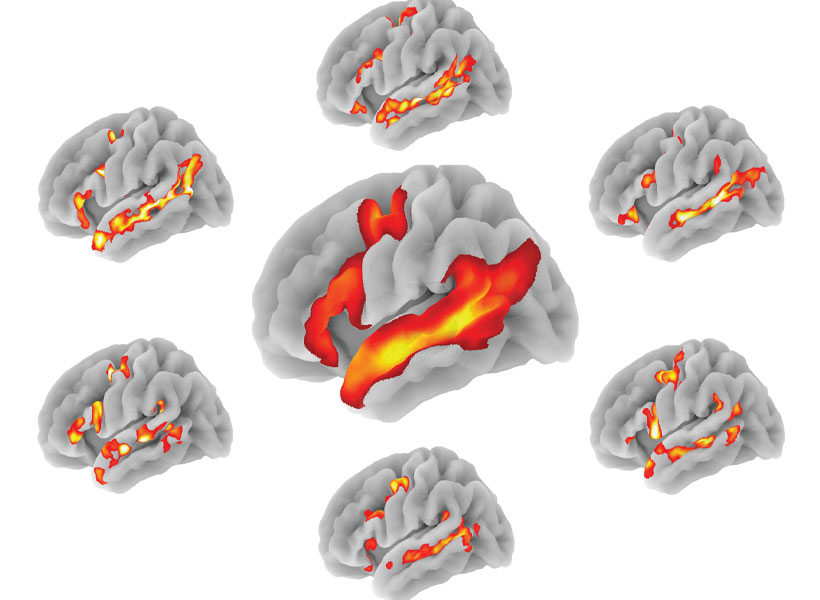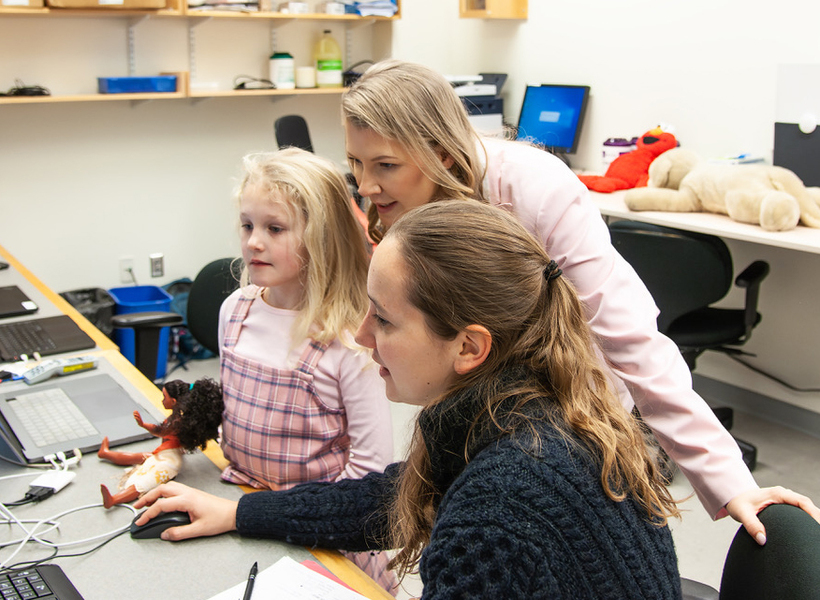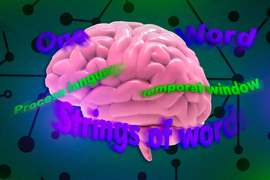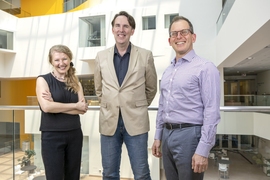The National Academy of Sciences (NAS) recently announced that MIT Associate Professor Evelina Fedorenko will receive a 2025 Troland Research Award for her groundbreaking contributions toward understanding the language network in the human brain.
The Troland Research Award is given annually to recognize unusual achievement by early-career researchers within the broad spectrum of experimental psychology.
Fedorenko, an associate professor of brain and cognitive sciences and a McGovern Institute for Brain Research investigator, is interested in how minds and brains create language. Her lab is unpacking the internal architecture of the brain’s language system and exploring the relationship between language and various cognitive, perceptual, and motor systems. Her novel methods combine precise measures of an individual’s brain organization with innovative computational modeling to make fundamental discoveries about the computations that underlie the uniquely human ability for language.
Fedorenko has shown that the language network is selective for language processing over diverse non-linguistic processes that have been argued to share computational demands with language, such as math, music, and social reasoning. Her work has also demonstrated that syntactic processing is not localized to a particular region within the language network, and every brain region that responds to syntactic processing is at least as sensitive to word meanings.
She has also shown that representations from neural network language models, such as ChatGPT, are similar to those in the human language brain areas. Fedorenko also highlighted that although language models can master linguistic rules and patterns, they are less effective at using language in real-world situations. In the human brain, that kind of functional competence is distinct from formal language competence, she says, requiring not just language-processing circuits but also brain areas that store knowledge of the world, reason, and interpret social interactions. Contrary to a prominent view that language is essential for thinking, Fedorenko argues that language is not the medium of thought and is primarily a tool for communication.
Ultimately, Fedorenko’s cutting-edge work is uncovering the computations and representations that fuel language processing in the brain. She will receive the Troland Award this April, during the annual meeting of the NAS in Washington.













